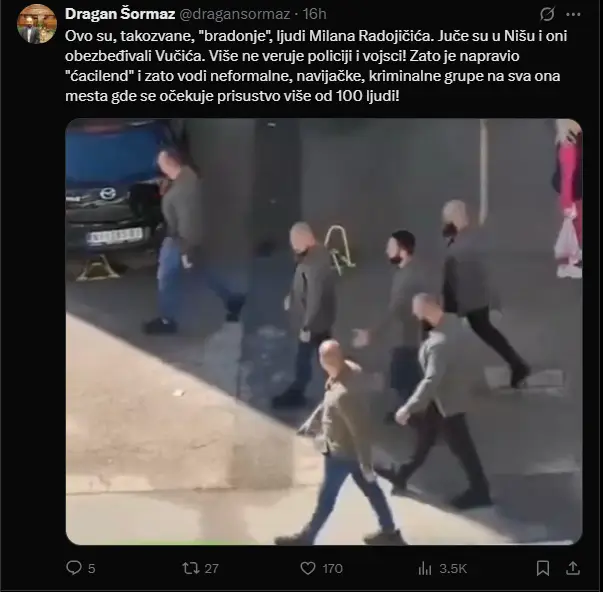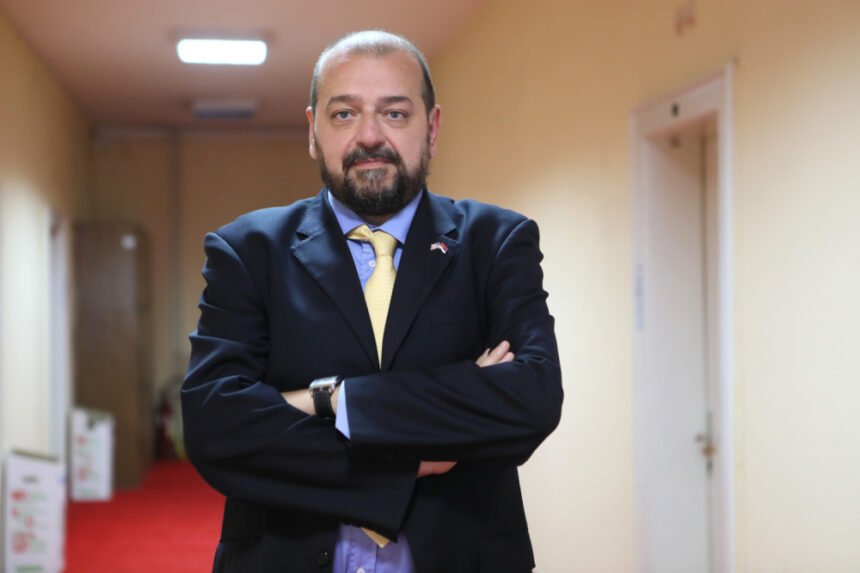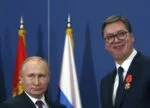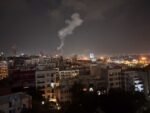Dragan Šormaz, a prominent Serbian political figure and former MP from the ruling SNS party, has voiced serious concerns regarding President Aleksandar Vučić’s reliance on unofficial, criminal-linked groups for security detail during recent public appearances. His comments come in reaction to a viral tweet alleging that Vučić was protected in Niš not by the police or military, but by so-called “bradonje”—a reference to men associated with Milan Radoičić, a controversial figure linked to nationalist and criminal networks in the north of Kosovo.
The tweet, which sparked a wave of public discussion, stated:
“These are the so-called ‘bradonje’, men of Milan Radoičić. Yesterday in Niš, they were securing Vučić. He no longer trusts the police and the army! That’s why he created ‘Ćacilend’ and why he deploys informal, fan-based, criminal groups to every place where more than 100 people are expected to gather!”

Šormaz responded firmly, saying that this reflects an alarming breakdown of state institutions and a personal power structure that is increasingly reliant on illegal and informal forces. He warned that “when a president ceases to trust the army and police and instead turns to groups linked to organized crime, we are no longer speaking of a democracy but of a captured state.”
Milan Radoičić and the Shadow Security Apparatus
Milan Radoičić, long suspected of connections to both political elites and criminal underworlds, has frequently been at the center of controversies involving paramilitary actions, particularly in the north of Kosovo. Though officially distanced by the Serbian government after U.S. and EU scrutiny, his influence appears undiminished in certain state functions—particularly those involving covert operations or intimidation.
If the claims about Niš are accurate, this marks a disturbing precedent where state security is subcontracted to extrajudicial forces, bypassing institutional accountability. Analysts have noted that Vučić’s increasing reliance on such groups signals his growing isolation and distrust within the ranks of the official military and law enforcement bodies.
The Emergence of “Ćacilend”
The term “Ćacilend,” coined by critics to describe Vučić’s personal network of loyalists and shadow enforcers, is gaining traction as a symbol of a parallel system of governance and control, distinct from the constitutional framework of the Republic of Serbia.
“This isn’t just about security at a rally—it’s about the erosion of the rule of law,” Šormaz stated. “It’s about fear, loyalty bought through fear, and the manipulation of national symbols to protect personal power.”
Implications for the EU Path
The alleged use of criminal structures to maintain control and influence could have serious consequences for Serbia’s EU accession process. Brussels has repeatedly emphasized the importance of judicial independence, democratic governance, and the rule of law. Should these patterns continue, it may prompt the EU to reconsider its engagement with Belgrade’s current leadership.
Šormaz’s remarks are not just an internal political critique—they are a warning to Serbia’s international partners that authoritarian tendencies may now be reinforced by elements far outside the constitutional order.







